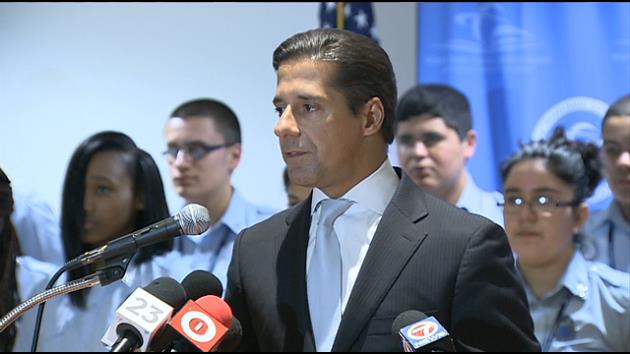We must stand humble before complexity and order without planning.
F.A. Hayek is an epic figure in the history of human freedom. He stood for liberty at a time when most intellectuals in the world embraced ideologies of command and control. His literary legacy continues to provide some of the most powerful arguments ever made for the depoliticization of the social order, including its commercial life.
But, in my personal experience, he can also be one of the most difficult thinkers to grasp.
After F.A. Hayek died in 1992, for example, a magazine commissioned me to do a final tribute to his life and work, summing up his main contributions. It was supposed to be for a popular audience. There’s nothing like such a writing assignment to reveal how much you actually know — or do not know — about a subject.
I thought it was going to be a snap. I covered his biography and politics just fine; I mentioned his business-cycle studies and his work on capital theory. But of course his main contribution to the world of social science is summed up in the phrase “the knowledge problem.” Even though I read most of his major work, and read his seminal articles on the problem of knowledge, I was stunned to find myself with writer’s block.
What I came to realize is that I didn’t understand, much less appreciate, his writing on this topic. So I covered the basics (the knowledge needed to run the social order is distributed in individual minds and inaccessible to planners), but my heart wasn’t in it. That’s where matters stood for me for about twenty years.
I tried to make an effort to get how it was that Hayek was able to write vast literature on this one subject, why his seminal article “The Use of Knowledge in Society” was the most cited article in the second half of the twentieth century, why innumerable dissertations have been written on Hayek’s insight, and why he has influenced countless scholars in so many disciplines for so long.
Part of the problem is that Hayek did not always write with his logic and conclusions on his sleeve. His rhetorical style is not so much hortatory or doctrinaire as it is searching and exploratory. You get the sense that he is thinking through an issue as he writes, struggling to find the right combination of words, the right phrasing, the right examples, to capture his insight — which always seems to be unfolding in real time rather than stated like a final product for consumption.
For someone who is looking for final answers and pure theory, this type of writing can be frustrating. There was the additional problem that Hayek can just be downright annoying in places, contradicting himself by endorsing political programs at odds with his own theory. He also has a habit of backing away from the hardest conclusions of his own narrative. If you seek a clear definition of ideas like freedom or property rights in Hayek’s work, you will come away disappointed. He often seemed so consumed by the complexity of the world that he shied away from clarity for fear that he had missed something. For readers looking for ironclad deductions and arguments, his approach can give the impression of being an elaborate display of obscurantism.
In order to understand Hayek and to learn from him, you have to be prepared to think alongside him as he writes. His work presumes an open mind that is ready to think about complex topics, most often from the inside out. He is asking and seeking to answer a completely different set of questions than most people are even willing to consider. Most readers are not prepared to consider them. This is a point it took me many years to understand.
What changed for me? I needed a visual application of the knowledge problem, something that connected the theory with reality. This happened to me at a bar atop one of the highest spots in São Paulo, Brazil, a spot where you could make a complete turn and see the lights of the city as far as you looked. It was a world without end, in all directions.
I was overwhelmed at its utter incomprehensibility. It was too much for my mind because it is too much for any mind. The revelation hit me like a truck: this is an order that no one can possibly comprehend in either its totality or its parts, and, as such, an order that no one can possibly control. It cannot be built by anyone in particular; it is built only by an extended and hyper-complex process that is driven by individual minds that takes many generations to unfold.
It can only be harmed by those who would presume to control it — and the bureaucrats and politicians in this city surely do. The regulators can pass regulations. The planners can order buildings built and torn down. They can loot those who are willing to comply. But, in the end, in this city of more than 11 million people, even in the presence of overweening government, society somehow takes its own course. How this happens and why cries out for explanation.
“The knowledge of the circumstances of which we must make use never exists in concentrated or integrated form,” explains Hayek, “but solely as the dispersed bits of incomplete and frequently contradictory knowledge which all the separate individuals possess.”
I came to realize, right there, that this is not just about São Paulo. It’s about any city in the world. In fact, it’s about every social setting, large or small. It’s about the whole world. Only individuals possess the knowledge that nearly all social scientists — and bureaucracies — imagine that they can, must, and do possess. Anyone who seeks to control the social order is presuming that the unanswerable questions are already answered and proceeds from that point. Hayek is digging deeper to observe that we cannot possibly know what we must know if we seek to design much less rule the world. The knowledge is dispersed and, by its nature, uncollectible.
Is Hayek describing a world of disconnected chaos and uncoordinated randomness, a nihilistic social order of swirling unpredictability? That is not the world in which we live. Why not? Because of the existence of institutions like prices, mores, habits, signaling systems of culture and learning — of knowledge that we all possess, not always consciously but mostly inchoately. They are institutions that we ourselves have not created, but they assist us in making the most of our lives.
“We make constant use of formulas, symbols, and rules whose meaning we do not understand,” writes Hayek, “and through the use of which we avail ourselves of the assistance of knowledge which individually we do not possess. We have developed these practices and institutions by building upon habits and institutions which have proved successful in their own sphere and which have in turn become the foundation of the civilization we have built up.”
As I stood at the same bar in São Paulo looking all around me, my vision changed from macrocosm to microcosm. I observed two people standing close by. They were embracing, kissing intimately. I wondered whether this was a first date or if they had been together for many years. I had no access to that information, and nothing they did gave me the answer. They seemed to be courting each other but at what level and in what way I could not know. And yet this information was foundational to everything both of them were thinking at the time. To truly understand this relationship, I would have to know not just something but countless bits of information I could not really know.
What’s more, even this two-person society was not comprehensible to the two people themselves. Part of the spark of their relationship was the emotional dance they were engaged in right there on the spot. Their intimacy was their means of accessing, however incompletely and briefly, the true spirit of the other’s intellectual and emotional state of mind. They can come close, through every means available, but never entirely achieve that oneness for which true love strives.
Even so, both people in this two-person society were seeking longingly and lovingly for the ideal, coordinating their actions through shared cues, language, and symbols. And in so doing, they created their own micro-order right there, as had everyone else in that bar, as has every one of the 11 million people in that city, as has every one of the 7 billion people on this planet.
We all seek some form of individuality but also a connection to others. We can create institutions to make this possible, but mostly we embed ourselves within them. The institutions emerge from within the structure of our shared experience, chosen and not imposed, and we gravitate toward those who work and eschew those who don’t, in an ever-evolving process of discovery.
Let’s say you set out to plan the world. “If we possess all the relevant information,” writes Hayek, “if we can start out from a given system of preferences, and if we command complete knowledge of available means, the problem which remains is purely one of logic.” We only need to plug in the right data into our calculus and issue orders. The problem is that this solution presumes that the unsolvable problem — gaining that information — has already been solved.
What is the significance of this revelation? It lays waste to a century — or many centuries — of intellectual pretense. The social order is built by the coordination of plans. If those plans are always individual plans, radically individuated and subjectivized, coordinated only through evolved institutions created by no one in particular, the dreams of every would-be master of the universe come crashing down.
The most obvious conclusion is also the most powerful one from a political point of view. The source of order is not the government, even though people continue to believe that despite all evidence. The bureaucratic class and the politicians who empower that class are no more or less smart than you and I are. They are just people with no special insight. Because of government’s legal right to plunder, the government is corrupt and exploitative. It takes stuff from people. That’s about the whole of it. It is not the source of anyone’s order.
What then is the source of social order? It is our individual minds, however imperfect they may be in making judgments about our world. Freedom is the only real option there is. Anything else is based on a lie — a “pretense of knowledge,” as Hayek would say. Anything that subverts that freedom, which means any state at all, amounts to an attack on the very source of social order.
“If we can agree that the economic problem of society is mainly one of rapid adaptation to changes in the particular circumstances of time and place,” Hayek concludes, “it would seem to follow that the ultimate decisions must be left to the people who are familiar with these circumstances, who know directly of the relevant changes and of the resources immediately available to meet them.
We cannot expect that this problem will be solved by first communicating all this knowledge to a central board which, after integrating all knowledge, issues its orders. We must solve it by some form of decentralization. But this answers only part of our problem. We need decentralization because only thus can we insure that the knowledge of the particular circumstances of time and place will be promptly used.
I’m drawn to Hayek’s use of the terms “immediately” and “promptly.” With these words he introduces the ultimate enemy of all those who would control the world: the passage of time. With the existence of time comes change, and with change comes new and different knowledge. Even if it were possible somehow to gain a complete snapshot of the world with all its existing knowledge, by the time it could be used for any purpose to bend the world from its course to another, that knowledge would be outdated and hence useless. Even under the best circumstances, the planners would only be planning the past.
Here, then, is the knowledge problem. It is about more than the ability to plan an economy. It is about the whole of our lives. It is about the ability to plan and direct the course of civilization. That capacity to manage the world, even the smallest part of it, will always and everywhere elude our grasp. That’s a beautiful insight, because it reveals the truth about human freedom.
Freedom is not just one way to organize society. It is the only way.
Jeffrey Tucker is a distinguished fellow at FEE, CLO of the startup Liberty.me, and editor at Laissez Faire Books. Author of five books, he speaks at FEE summer seminars and other events.
EDITORS NOTE: The featured image is courtesy of FEE and Shutterstock.


















